Farmers beat brain injuries: William Cole, Lloyd Polkinghorne and Robbie Frawley
A shotgun blast changed Lloyd Polkinghorne’s life. He hopes his story of recovery will give other brain injury sufferers hope.
William Cole, Lloyd Polkinghorne and Robbie Frawley have lived through brain injuries, and found paths to recovery.
All from farming families, the men share their stories to explain how they coped with the symptoms, where they found treatment and support, and to give others hope that they, too, can recover.
A NIGHT ETCHED IN WILLIAM COLE’S HEAD
The large scar that snakes across the left side of William Cole’s head is one of the few remaining signs of the traumatic brain injury he suffered four years ago.
The 26-year-old from Bookaar, in southwest Victoria, is sharing the story of his life-changing accident, and recovery, to raise awareness about brain injury symptoms and the support services available.
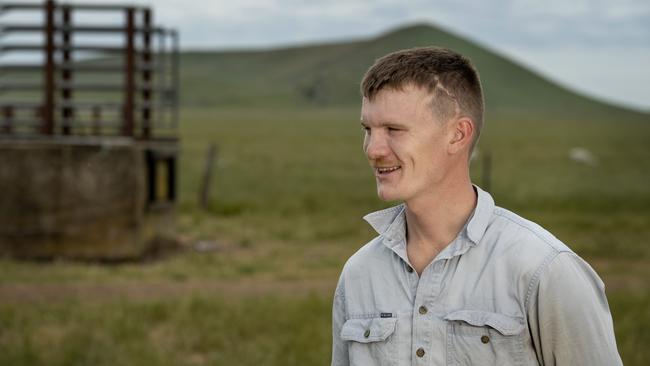
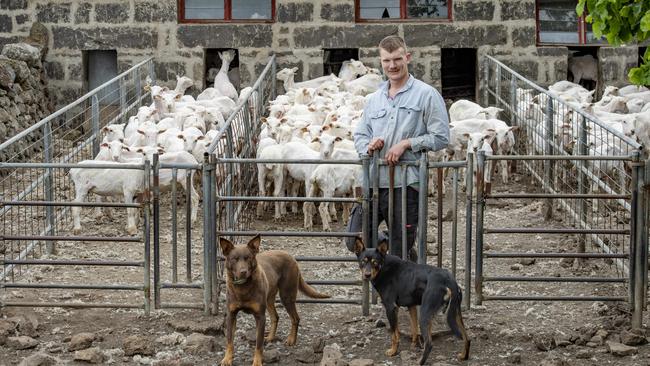
“There is always a big risk in terms of accidents in this industry,” said William, who grew up on his family’s sheep and cropping farm near Camperdown, and had been working as a welder on construction of the Western Victoria Livestock Exchange.
“I never thought I would be associating traumatic brain injury with my own self.”
William has made huge strides towards recovery, and has developed a passion for sharing his story to make people think twice about farm safety, but mainly to help others who are suffering from similar injuries. He is one of five brain injury sufferers interviewed on a new podcast called Stories of Recovery.
“I feel like if more people hear about it and awareness is spread, I believe there will be a community born and it will be a strong point for people to rely on other people,” he said.
The date of the accident – Friday, October 8, 2017 – is seared into his memory, but he has no recollection of the actual crash.
“I used to have flashbacks and hear machinery grinding, and yelling and screaming. I don’t know if that was me hearing myself,” William said.
On the night of his accident, he was riding an agricultural motorbike home from his neighbour’s property at about 9pm, when his handlebar clipped a bluestone wall as he crossed a cattle grate on to his farm.
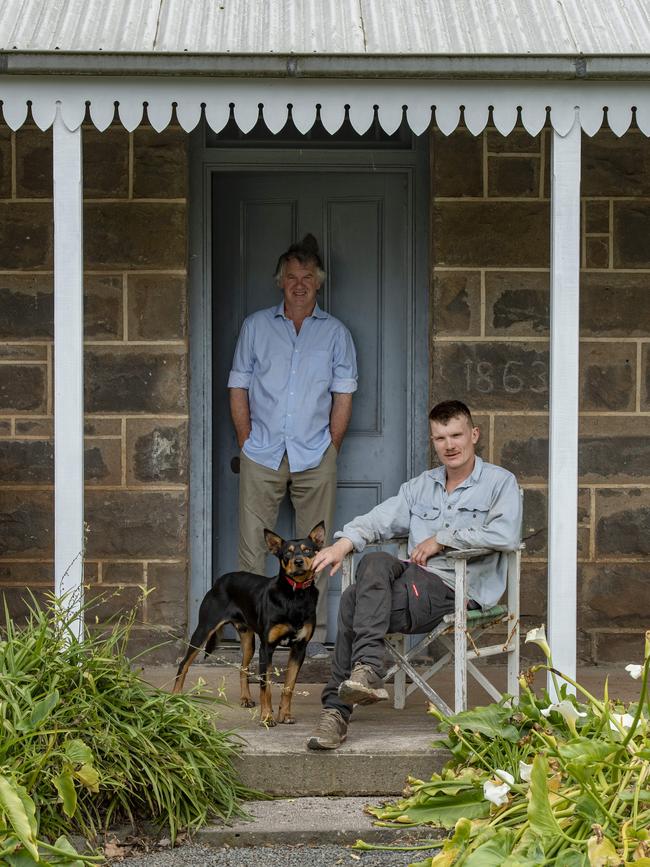
He believes his head hit the wall, and his helmet – which wasn’t fastened – came off before he hit the ground.
“I completely broke my face, the eye sockets, my jaw … all around my skull. And I had a rupture in my hamstring,” William said.
He then staggered across a paddock looking for shelter, and climbed into the boot of his neighbour’s car.
She found him at 6am. He was quietly scratching – like a wounded animal – and had been curled up there all night.
“She was the first one awake and heard me in the back,” said William, who was flown to Royal Melbourne Hospital.
“I was put into a coma for 11 days; 11 or nine. That’s the thing with a brain injury. My memory is still not great,” he said.
His recovery started the moment he woke up in hospital.
“I couldn’t believe how lucky I was, and how I managed to be able to still be alive.
“It gave me an amazing overflow of positivity in life.”
“The result of being able to be kept alive was I wanted to continue going forward and wanted to keep being my best self, even though I was injured. But also be able to be my best self to help others.”
Memory loss was just one of William’s many symptoms. He had to relearn how to walk and control his body, and still sometimes suffers from cognitive fog and difficulty concentrating.
“I would sometimes just forget and lose the meaning of a conversation … I would get butterflies and nervous and felt like everyone was watching me,” he said.
The injury also triggered aggression, completely out of character for William.
“Early on I used to flick the switch a bit easily, and get a bit of temper and be all wound up for not much reason,” he said. “That is why I teamed up with a bunch of neuropsychologists, to be able to control that.”
William worked closely with health professionals to bring the aggression under control, and regain cognition.
“I really took on board what they were saying, and being proactive in understanding their advice and knowledge helped me to be able to go forward,” he said.
Traumatic brain injuries can be caused by injuries as serious as William’s, or events as innocuous as a shockwave.
THE MOMENT THAT CHANGED LLOYD’S LIFE
Former grain grower Lloyd Polkinghorne suffered a brain injury in 2013 caused by a shotgun blast. A new gun he was using on his family farm at Moulamein, in the NSW Riverina, malfunctioned, discharging out the side.
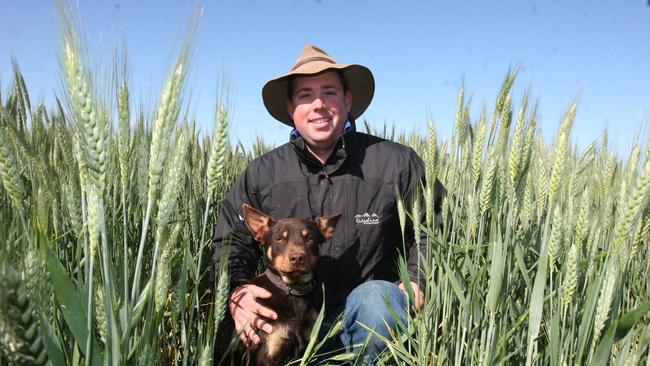
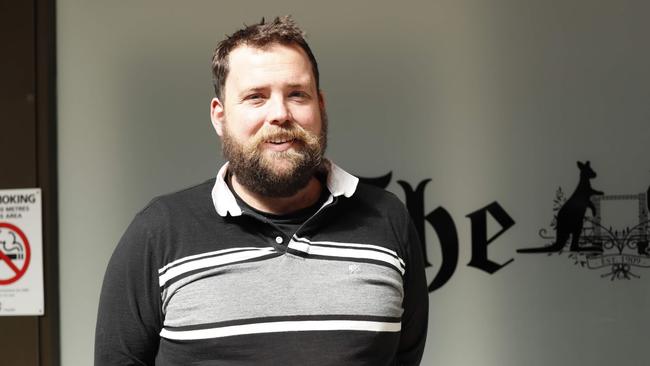
“At the time it felt like I had been kicked in the head,” said Lloyd, who was 29 at the time. “I didn’t think too much of it.”
His injury went undiagnosed for months while his health spiralled downhill.
“I went to the doctor five times in the 10 days after the accident,” he said. “After that stage, he was telling me that I’d get over it, and things would be all right.”
Headaches and light sensitivity set in. The membrane around his brain started leaking fluid. Then came distressing symptoms including weight gain, depression, night terrors and post-traumatic stress disorder.
Eventually, after seeing countless specialists, Lloyd was told his frontal lobe had been damaged.
“I ended up in bed for four years; and had to sell my productive land,” said Lloyd, who had recently taken over part of his family’s farm, but couldn’t manage it due to the injury.
“It completely turned my life upside down.”
With huge support from his wife, Lauren, he eventually found treatment options that helped.
“Then it was a process of continuing to find things that worked for me, or improved my brain function,” he said. Some therapies, such as yoga, had been little help early on, but became integral to his recovery later.
PODCAST GIVES SURVIVORS HOPE
Lloyd and William share their stories on the Stories of Recovery podcast, produced by fellow brain injury survivor Robbie Frawley.
Originally from a farm in southwest Victoria, Robbie is a keen athlete who enjoys cycling and water sports.
“I’d had a few concussions,” said Robbie, recounting the knock that happened while wakeboarding seven years ago, when he was 27.
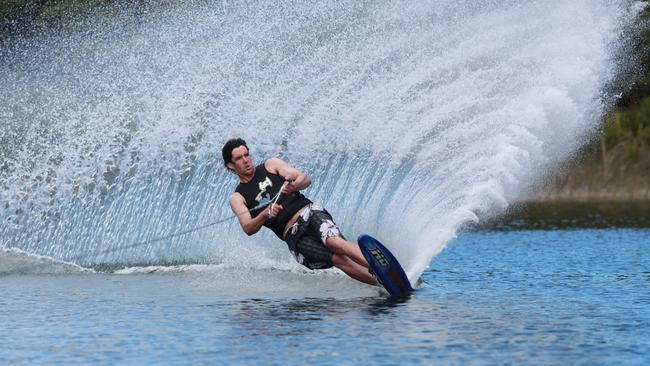
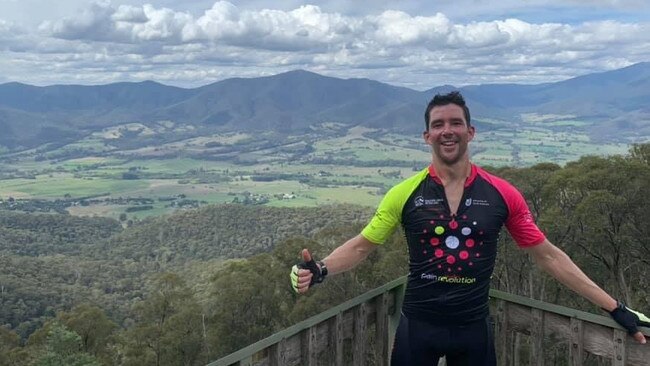
“This one didn’t seem any different. It was a common fall that had happened countless times before.”
Except a second knock followed the next day, which resulted in debilitating headaches, then nausea, vertigo, imbalance, cognitive fog and fatigue, which lasted for six years.
“Similar to Lloyd, I very much knew there was something wrong,” he said.
“I was lucky in that my GP recognised very early what potentially could be at play, and referred me to an appropriate group who could provide that guidance and give me certainty.”
Post-concussion syndrome was his diagnosis.
Robbie says it took nearly six years to fully recover. He says he reclaimed his life by working closely with health professionals and learning about the latest research into pain science. He then joined a group called Pain Revolution, which raises awareness about pain care and education.
He is passionate about sharing what he has learned about pain science, to give sufferers and their supporting family and treaters more tools to heal after brain injuries.
His podcast features the stories of five people who are at different stages of recovery.
He said he hoped the episodes will give others hope that regaining health after a brain injury is possible, and connect them with resources that can help.




